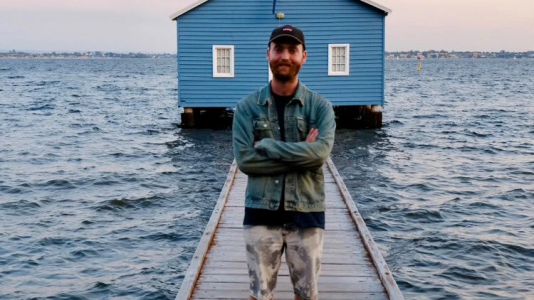Beware of online romance! Charlie's story about falling for a Snapchat sextortion scam is a must-read
We at the Seniors Discount Club feel that it’s our duty to share real-life stories that may offer guidance in overcoming any potential unwanted online experiences.
Charlie Wade, a 21-year-old English backpacker exploring Australia, was hoping to make friends and connections in his new surroundings. With the aid of Snapchat, a famous photo and video-sharing social media app, he thought he had found a kindred spirit in 'Amelia,' a young woman who claimed to be from London.

Sharing photos and messages, the two seemed to form a genuine connection. Though surprised by her request for a nude photo of himself, Charlie reluctantly complied. Trust had been established, and sending the photo felt harmless.
Yet, Charlie's trust was betrayed as Amelia subsequently demanded a £500 (approximately $950 AUD) bribe to prevent the distribution of the intimate image to all his Instagram followers. Caught in panic and frazzled emotions, Charlie attempted to send the money.
Thankfully, the bank denied the transaction due to the large amount, and Charlie ultimately decided not to cater to Amelia's demands. Instead, he bravely blocked her from all channels and notified his friends of the situation.
According to Australia's E-Safety Commissioner, the number of sexual extortion reports almost tripled in Australia in the first quarter of 2023, reaching 1,700 cases. A whopping 90 per cent of those reports came from young males, with 1,200 of them aged 18 to 24 years old.
These statistics are a reminder for all of us to exercise due diligence and protect our personal information when engaging with new people on social media platforms.

Due to his harrowing experience, Charlie has since avoided communicating with strangers online. Instead, he advocates for face-to-face encounters before establishing online relationships.

The story of Charlie Wade serves as a powerful reminder of the importance of protecting our privacy and staying vigilant in the face of online dangers. We can all learn from Charlie's resilience and personal growth, using his experience as a lesson to avoid devastating situations.
As we continue this meaningful conversation, let's make a conscious effort to approach all online connections, whether romantic or friendly, with caution and discretion. Dear readers, how do you prioritise your online safety and protect your privacy? Share your insights and tips with us, as together, we strive for a safer digital environment.
Charlie Wade, a 21-year-old English backpacker exploring Australia, was hoping to make friends and connections in his new surroundings. With the aid of Snapchat, a famous photo and video-sharing social media app, he thought he had found a kindred spirit in 'Amelia,' a young woman who claimed to be from London.

Charlie utilised the online platform Snapchat to exchange messages and share pictures with ‘Amelia’. Image by MrJayW from pixabay
Sharing photos and messages, the two seemed to form a genuine connection. Though surprised by her request for a nude photo of himself, Charlie reluctantly complied. Trust had been established, and sending the photo felt harmless.
Yet, Charlie's trust was betrayed as Amelia subsequently demanded a £500 (approximately $950 AUD) bribe to prevent the distribution of the intimate image to all his Instagram followers. Caught in panic and frazzled emotions, Charlie attempted to send the money.
Thankfully, the bank denied the transaction due to the large amount, and Charlie ultimately decided not to cater to Amelia's demands. Instead, he bravely blocked her from all channels and notified his friends of the situation.
What Is Sextortion?
Sextortion (the act of coercing a person into sharing intimate images that are later used for extortion purposes) is an all too common and sinister practice in the digital era where meeting people, building relationships, and even finding love has moved largely online.According to Australia's E-Safety Commissioner, the number of sexual extortion reports almost tripled in Australia in the first quarter of 2023, reaching 1,700 cases. A whopping 90 per cent of those reports came from young males, with 1,200 of them aged 18 to 24 years old.
These statistics are a reminder for all of us to exercise due diligence and protect our personal information when engaging with new people on social media platforms.

While backpacking around Australia, Charlie fell victim to a sextortion scam that left him in a distressing situation. Source: Charlie Wade
Due to his harrowing experience, Charlie has since avoided communicating with strangers online. Instead, he advocates for face-to-face encounters before establishing online relationships.
Best practices for maintaining privacy and security online
Here are some best practices for maintaining privacy and security online that can be implemented to avoid becoming a victim of deceitful online relationships:- Be cautious of sharing personal information: Your name, email address, phone number, or home address should never be shared with strangers online.
- Strong passwords are vital: Create unique, strong passwords for all your online accounts and avoid using the same password across multiple platforms.
- Trust your instincts: If something feels off about a person or situation, trust your gut. Do not engage in conversations or activities that make you uncomfortable.
- Verify the person's identity: When engaging with someone new online, use reverse-image search tools like Google Images or TinEye to authenticate their profile picture.
- Set boundaries: Before striking up conversations with strangers, decide on your personal boundaries regarding the type of information and media you are comfortable sharing.
- Know your privacy settings: Get familiar with the privacy settings of your social media platforms and messaging apps. Optimise them to limit how much information is visible to strangers and unknown contacts.
- Report and block: If you encounter a user making inappropriate advances or threats, immediately report them to the platform and block them from contacting you again.
Key Takeaways
- Reports of blackmail using sexual images and videos have tripled in Australia.
- Charlie Wade, an English backpacker, is warning others of the pitfalls of online romance after falling for a sextortion scam on Snapchat.
- The e-Safety Commissioner states that paying criminals only results in more extortion.
- Since the incident, Mr Wade has stopped talking to strangers online, only engaging with people he has met in person.
The story of Charlie Wade serves as a powerful reminder of the importance of protecting our privacy and staying vigilant in the face of online dangers. We can all learn from Charlie's resilience and personal growth, using his experience as a lesson to avoid devastating situations.
As we continue this meaningful conversation, let's make a conscious effort to approach all online connections, whether romantic or friendly, with caution and discretion. Dear readers, how do you prioritise your online safety and protect your privacy? Share your insights and tips with us, as together, we strive for a safer digital environment.







